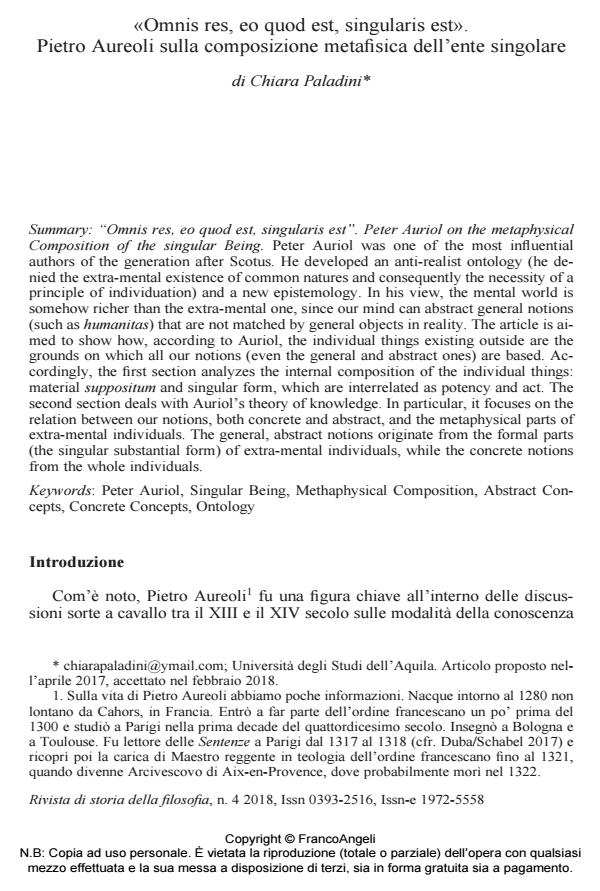«Omnis res, eo quod est, singularis est». Pietro Aureoli sulla composizione metafisica dell’ente singolare
Titolo Rivista RIVISTA DI STORIA DELLA FILOSOFIA
Autori/Curatori Chiara Paladini
Anno di pubblicazione 2018 Fascicolo 2018/4
Lingua Italiano Numero pagine 25 P. 569-593 Dimensione file 90 KB
DOI 10.3280/SF2018-004002
Il DOI è il codice a barre della proprietà intellettuale: per saperne di più
clicca qui
Qui sotto puoi vedere in anteprima la prima pagina di questo articolo.
Se questo articolo ti interessa, lo puoi acquistare (e scaricare in formato pdf) seguendo le facili indicazioni per acquistare il download credit. Acquista Download Credits per scaricare questo Articolo in formato PDF

FrancoAngeli è membro della Publishers International Linking Association, Inc (PILA)associazione indipendente e non profit per facilitare (attraverso i servizi tecnologici implementati da CrossRef.org) l’accesso degli studiosi ai contenuti digitali nelle pubblicazioni professionali e scientifiche
Peter Auriol was one of the most influential authors of the generation after Scotus. He developed an anti-realist ontology (he denied the extra-mental existence of common natures and consequently the necessity of a principle of individuation) and a new epistemology. In his view, the mental world is somehow richer than the extra-mental one, since our mind can abstract general notions (such as humanitas) that are not matched by general objects in reality. The article is aimed to show how, according to Auriol, the individual things existing outside are the grounds on which all our notions (even the general and abstract ones) are based. Accordingly, the first section analyzes the internal composition of the individual things: material suppositum and singular form, which are interrelated as potency and act. The second section deals with Auriol’s theory of knowledge. In particular, it focuses on the relation between our notions, both concrete and abstract, and the metaphysical parts of extra-mental individuals. The general, abstract notions originate from the formal parts (the singular substantial form) of extra-mental individuals, while the concrete notions from the whole individuals.
Parole chiave:Peter Auriol, Singular Being, Methaphysical Composition, Abstract Concepts, Concrete Concepts, Ontology
Chiara Paladini, «Omnis res, eo quod est, singularis est». Pietro Aureoli sulla composizione metafisica dell’ente singolare in "RIVISTA DI STORIA DELLA FILOSOFIA" 4/2018, pp 569-593, DOI: 10.3280/SF2018-004002